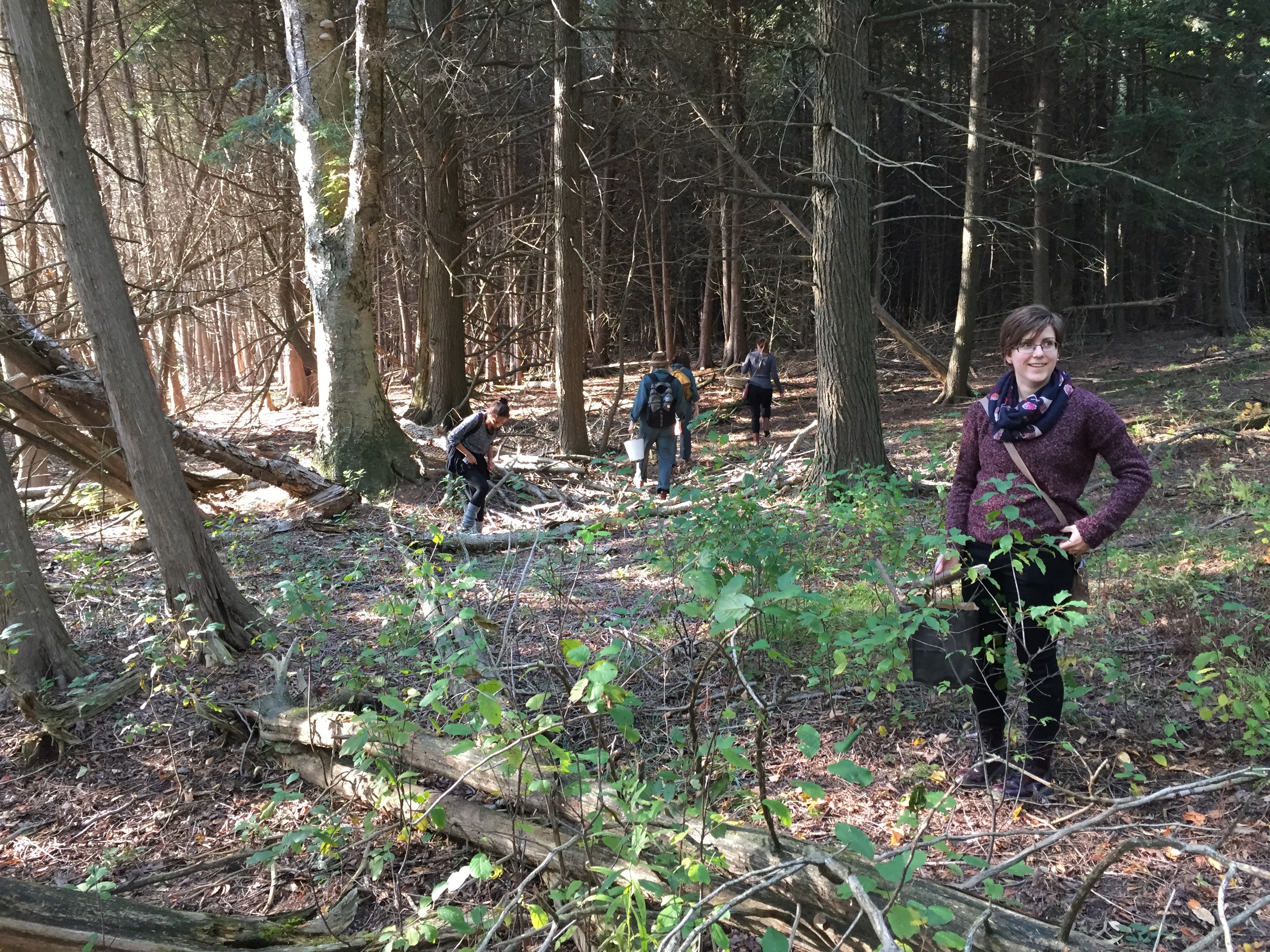The annual Extended Practices Arboretum Mushroom Foray took place Oct. 7th this year, on an unseasonably warm afternoon.
Marije and Rachel with some delicate wing-like brackets, and Nora with the cutest button in the woods.
Alaina’s basket of several different macro-fungi including this jelly – commonly called “witch’s butter”.
A selection of field guides from the library-trunk.
Main identification features for stalked, gilled mushrooms.
Chris Earley from the Arboretum participating in the ID session on the hood of the car. Art Historian and mushroom enthusiast Dario Ré describing morphological features.
Dario, Rachel, Sonali and Marije check out gills and spore colour. I carry deadly poisonous Gallerina autumnalis back into the woods.
Edward, Sydney and an immaculate Clitocybe, smelling of aniseed, aslo edible Hericium with “teeth”.

The day’s species included several jellies, brackets, Clitocybe, medicinal Ganoderma, Suillus, Russulas, pear-shaped puffballs, Hygrocybe, wolf’s milk and other slime moulds. Luckily no one brought back a stink-horn this time!
John Cage inspecting a giant parasol mushroom. Major modern composer, artist, poet and writer – Cage was deeply enthusiastic about fungi, and was the first president of the New York Mycological Society. He developed several works, pieces of music and writings related to foraging and mushrooms. Aspects of chance and indeterminacy, along with silence – were among his most important themes. See this charming video for Cage’s interpretations of a mushroom haiku.
Carsten Holler, Experience, 2011.
For more information on John Cage, fluxus, and the significant relationships between contemporary art and mushrooms – see Dario Ré’s Mushroom Resource – featuring countless examples of works featuring mushrooms and mycology organized by genus. In Carsten Holler’s work above are the hallucinogenic: Amanita muscaria. In Eastern Canada and Ontario we have only the yellow version (variation: formosa), with the same toxic properties as the iconic red Amanita’s found in the west coast.


















Leave a Reply
You must be logged in to post a comment.